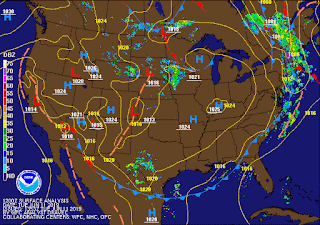How Will Climate Change Impact the Supply Chain?

By Kristin Manganello From ThomasNet Although “climate” is often used interchangeably with “weather,” the two are related but different. “Weather” refers to day-to-day atmospheric conditions and precipitation, whereas “climate” refers to the larger pattern of weather. Earth’s climate system consists of five components: the atmosphere (air), the hydrosphere (all fresh and saltwater), the cryosphere (ice), the lithosphere (solid land), and the biosphere (all living plants and animals). Although weather and natural disasters have always been unpredictable to a certain degree, climate change has made it more difficult to predict the timing and severity of these events. This means that managing supply chains has become more challenging on several fronts. These recent events serve as a reminder that warehouses, roads, railroads, power plants, and other critical facilities are extremely susceptible to the elements. “Extreme weather events can have a catastrophic effect on the productio...